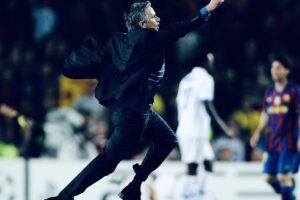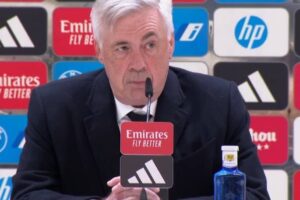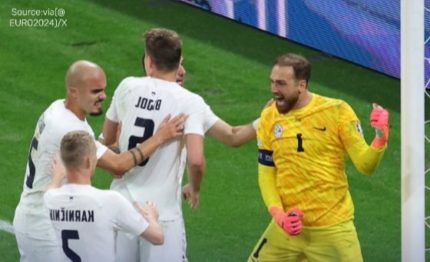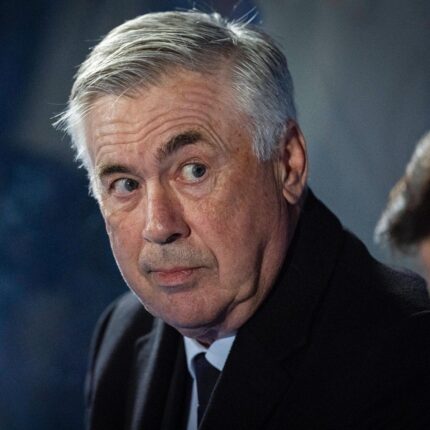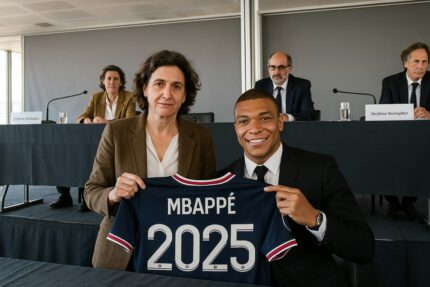In a tense Euro 2024 group stage match, Portugal showcased their ball control prowess against Slovenia, dominating possession throughout the first half. The Portuguese side consistently maintained control, with players like Bruno Fernandes and Joao Palhinha orchestrating play from midfield. Their ability to retain the ball was evident, with Portugal enjoying over 60% possession for much of the half.
Despite their control, Portugal struggled to convert possession into clear-cut chances. The team’s efforts to penetrate Slovenia’s defense were often thwarted by timely interventions from defenders like Vanja Drkusic and Jaka Bijol. While Portugal created several potentially dangerous attacks, they were unable to truly test goalkeeper Jan Oblak, highlighting a disconnect between their possession and offensive output.
Slovenia’s Resilient Defense Frustrates Portuguese Attack
Slovenia’s defensive strategy proved effective in the face of Portugal’s relentless pressure. The Slovenian backline, led by Vanja Drkusic and Jaka Bijol, demonstrated remarkable resilience, consistently clearing danger and intercepting crosses. Their ability to win crucial aerial duels, particularly against the threat of Cristiano Ronaldo, was a key factor in keeping Portugal at bay.
The disciplined Slovenian defense was not without its close calls, however. A defensive blunder by Zan Karnicnik in the 10th minute could have cost Slovenia dearly, but they managed to recover. The team’s commitment to their defensive shape was evident, with midfielders like Adam Gnezda Cerin and Timi Elsnik providing crucial support to the backline. This collective effort frustrated Portugal’s attempts to break through, forcing them into less threatening positions and speculative long-range efforts.
Missed Opportunities and Mounting Tension as Half-Time Approaches
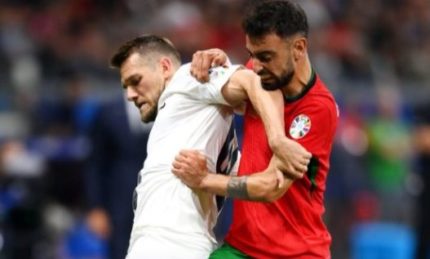
As the first half progressed, both teams had opportunities to break the deadlock, but neither could capitalize. Portugal came closest in the dying moments of the half when Joao Palhinha’s long-range effort struck the post, sending a wave of excitement through the stadium. This near-miss epitomized Portugal’s first-half performance – promising but ultimately lacking the final touch.
Slovenia, while primarily focused on defense, showed glimpses of attacking potential on the counter.
Benjamin Sesko’s shot from outside the box, comfortably saved by Diogo Costa, served as a reminder of Slovenia’s ability to threaten when given the opportunity. The mounting tension was palpable as the half drew to a close, with both teams aware that a single moment of brilliance or a crucial error could swing the match in their favor. The referee’s half-time whistle brought an end to an intriguing but goalless first 45 minutes, leaving fans eager for what the second half might bring.
Dominant Portugal Struggles to Convert
As the first half of extra time unfolded, Portugal maintained their grip on possession, controlling the ball for nearly 70% of the period. The Selecao’s attacking intent was evident, with multiple forays into Slovenia’s half. Bruno Fernandes, a key orchestrator for Portugal, saw one of his shots blocked in the 92nd minute, exemplifying the team’s persistent efforts to break the deadlock.
Despite their dominance, Portugal struggled to convert chances into goals. The Portuguese attack, led by stars like Cristiano Ronaldo and Diogo Jota, repeatedly tested Slovenia’s defense. However, the Slovenian backline, anchored by players like Jon Gorenc-Stankovic and Jaka Bijol, stood firm, making crucial interceptions and blocks to keep their team in the game.
Slovenia’s Resilient Defense
Slovenia’s defensive resilience was on full display throughout the extra time period. Goalkeeper Jan Oblak proved instrumental, making a crucial save in the dying moments of the half. The Slovenian defense worked tirelessly, with players like Jure Balkovec and Zan Karnicnik making vital clearances and blocks to frustrate Portugal’s attacking efforts.
While under constant pressure, Slovenia managed to mount occasional counterattacks. Benjamin Sesko’s aerial prowess caused problems for the Portuguese defense, winning key challenges against Joao Palhinha and Nuno Mendes. Benjamin Verbic also had a shot blocked by Ruben Dias, demonstrating Slovenia’s ability to pose a threat on the break despite their limited possession.
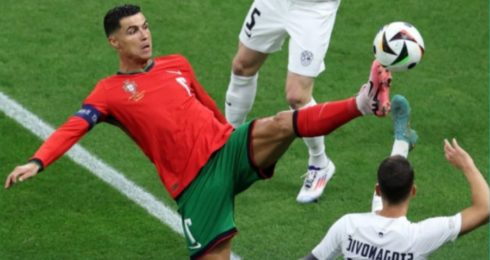
Drama Unfolds: VAR, Penalty, and Ronaldo’s Miss
The match reached a dramatic climax in the 103rd minute when Vanja Drkusic conceded a penalty for tripping Diogo Jota. The subsequent VAR check confirmed the referee’s initial decision, setting the stage for a potential match-winning moment. All eyes turned to Cristiano Ronaldo, Portugal’s talisman, as he stepped up to take the spot-kick.
In a shocking turn of events, Ronaldo’s penalty was saved by Jan Oblak, who parried the ball out for a corner. This crucial save not only kept Slovenia in the game but also added to the mounting pressure on Portugal. The missed opportunity highlighted the fine margins in knockout football and set the stage for a tense second half of extra time.
As the first half of extra time concluded, the scoreline remained level, leaving both teams with everything to play for in the final 15 minutes. Portugal’s inability to capitalize on their dominance and Ronaldo’s missed penalty have added an extra layer of intrigue to this Euro 2024 clash, setting up a thrilling finale.
Defensive Deadlock: Portugal and Slovenia Locked in Scoreless Battle
As the second half of this crucial Euro 2024 match unfolded, both Portugal and Slovenia found themselves unable to break the deadlock. The intensity on the pitch was palpable, with both sides demonstrating strong defensive capabilities. Slovenia’s backline, anchored by the likes of Jaka Bijol and Vanja Drkusic, proved particularly resilient, repeatedly thwarting Portugal’s attacking efforts.
Portugal, despite controlling possession for significant stretches, struggled to convert their dominance into clear-cut chances. The Slovenian goalkeeper, Jan Oblak, was in fine form, making crucial saves and commanding his area with authority. This defensive stalemate highlighted the tactical chess match between the two sides, each unwilling to concede an inch in this high-stakes encounter.
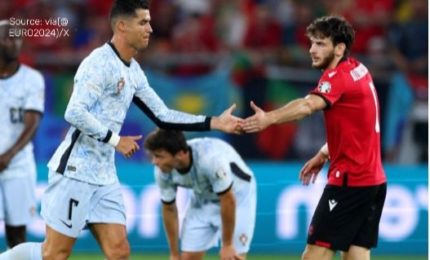
Missed Opportunities: Ronaldo and Portugal’s Attacking Frustrations
As the match progressed, Portugal’s star-studded attack, led by the evergreen Cristiano Ronaldo, grew increasingly frustrated. The Portuguese talisman had a golden opportunity in the 90th minute, but his effort was expertly saved by Oblak. This moment encapsulated Portugal’s night – close, but not quite clinical enough to break through.
The introduction of Diogo Jota in the 65th minute provided a spark for Portugal, creating several chances for his teammates. However, Slovenia’s disciplined defensive shape and well-timed interceptions consistently denied the Portuguese attack. The inability to capitalize on their possession and territorial advantage will undoubtedly be a concern for Portugal’s coaching staff as they reflect on this match.
Tactical Chess: Substitutions and Counter-Attacks
Both managers demonstrated their tactical acumen through strategic substitutions as the match wore on. Slovenia’s decision to bring on Jon Gorenc-Stankovic and Zan Celar in the 74th minute injected fresh energy into their counter-attacking efforts. These changes helped Slovenia maintain their defensive solidity while posing an occasional threat on the break.
Portugal responded with their own tactical adjustments, including the introduction of Chico Conceicao for Rafael Leao. These changes aimed to unlock the stubborn Slovenian defense, but ultimately fell short of creating the decisive breakthrough. The ebb and flow of the match, punctuated by these tactical shifts, showcased the high-level strategic battle unfolding on the pitch.
Conclusion:
As the match heads into extra time, both teams will be acutely aware of the fine margins that could decide this encounter. The possibility of a penalty shootout looms large, adding an extra layer of tension to an already gripping contest. Portugal’s star-studded lineup will be eager to avoid such a lottery, while Slovenia will draw confidence from their resolute defensive display. With fatigue becoming a factor, it remains to be seen which side can summon the energy and composure needed to clinch victory in the additional periods.
Dramatic Extra Time Unfolds
The second half of extra time began with high drama as Slovenia’s head coach, Matjaz Kek, was sent off for verbally abusing the referee. This set the tone for an intense 15 minutes of football, with both teams pushing for a decisive goal. Portugal maintained their dominance in possession, holding the ball for 68% of the time, but struggled to break down a resilient Slovenian defense.
The match saw a flurry of tactical substitutions, with Josip Ilicic replacing Timi Elsnik for Slovenia, while Portugal brought on Nelson Semedo and Ruben Neves for Joao Cancelo and Pepe respectively. These changes highlighted the desperate attempts by both managers to find a winning formula in the dying minutes of the game.
Defensive Heroics and Missed Opportunities
Slovenia’s defense, led by the likes of Jaka Bijol and Jure Balkovec, put on a heroic display to keep Portugal at bay. Both defenders received yellow cards for their efforts, demonstrating the intensity of their commitment. Jan Oblak, Slovenia’s goalkeeper, was in outstanding form, making crucial saves including a comfortable stop from Joao Palhinha’s header in the 108th minute.
Portugal’s attacking efforts were relentless but ultimately fruitless. Cristiano Ronaldo, the team’s talisman, saw a headed effort blocked in the 120th minute, epitomizing Portugal’s frustration. The closest they came to breaking the deadlock was through Bruno Fernandes, whose crosses consistently found teammates in dangerous positions, but Slovenia’s defenders were always on hand to make vital interceptions.
Slovenia’s Counter-Attack Threat
Despite being under constant pressure, Slovenia managed to mount several dangerous counter-attacks. The most notable opportunity fell to Benjamin Sesko in the 115th minute. After a defensive blunder by Pepe, Sesko found himself one-on-one with Portugal’s goalkeeper, Diogo Costa. However, Costa made a crucial save, denying Slovenia what could have been a match-winning goal.
This missed opportunity was followed by another chance for Zan Celar, who failed to find the target from outside the box. These moments of attacking threat from Slovenia kept Portugal on their toes, preventing them from committing too many players forward in search of a winner.
As the final whistle blew, with the scoreboard still showing 0-0, the tension in the stadium was palpable. The attendance of 46,576 spectators witnessed a display of tactical chess, physical endurance, and mental fortitude from both teams. With penalties looming, both Portugal and Slovenia will be reflecting on their missed opportunities and preparing for the lottery of a shootout to decide who advances in Euro 2024.



